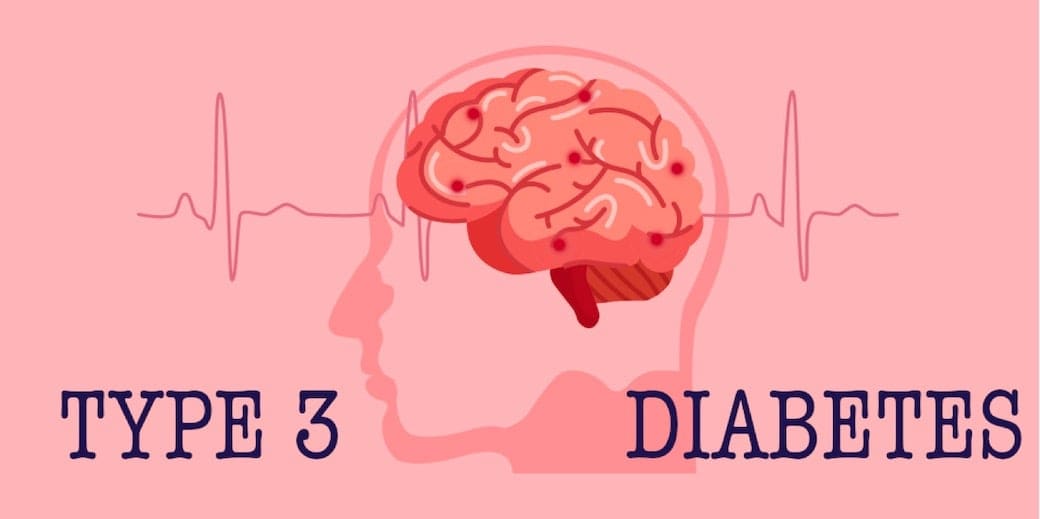
In recent years, there has been growing awareness about a lesser-known form of diabetes known as Type 3 diabetes. This condition, also referred to as “brain diabetes,” has been linked to cognitive impairment and Alzheimer’s disease. Understanding its causes, recognizing its symptoms, and implementing preventive measures are crucial for managing this unique form of diabetes.
What is Type 3 Diabetes?
Type 3 diabetes is a term used to describe a form of diabetes that affects the brain, particularly impairing cognitive function. While Type 1 diabetes involves the body’s inability to produce insulin and Type 2 diabetes involves insulin resistance, Type 3 diabetes primarily affects the brain’s insulin levels and function.
Causes of Type 3 Diabetes:
- Insulin Resistance in the Brain: Research suggests that insulin resistance in the brain may play a significant role in the development of Type 3 diabetes. This resistance impairs the brain’s ability to utilize glucose effectively, leading to cognitive decline.
- Amyloid Plaque Accumulation: Amyloid plaques, which are characteristic features of Alzheimer’s disease, have been found to interfere with insulin signalling in the brain. This interference contributes to the development of Type 3 diabetes.
- Genetic Predisposition: Certain genetic factors may predispose individuals to Type 3 diabetes, making them more susceptible to cognitive impairment and Alzheimer’s disease.
- Lifestyle Factors: Poor diet, sedentary lifestyle, obesity, and other lifestyle factors associated with Type 2 diabetes can also increase the risk of developing Type 3 diabetes.
Symptoms of Type 3 Diabetes:
- Memory Loss: One of the hallmark symptoms of Type 3 diabetes is memory loss, particularly difficulty remembering recent events or information.
- Cognitive Decline: Individuals with Type 3 diabetes may experience difficulties with concentration, problem-solving, and decision-making.
- Mood Changes: Mood swings, irritability, and changes in personality may occur as a result of cognitive impairment associated with Type 3 diabetes.
- Confusion and Disorientation: Some individuals may experience confusion, disorientation, and difficulty in performing daily tasks.
- Progressive Symptoms: The symptoms of Type 3 diabetes tend to worsen over time, gradually impacting overall cognitive function.
Prevention Strategies for Type 3 Diabetes:
- Maintain a Healthy Lifestyle: Adopting a healthy diet, engaging in regular physical activity, maintaining a healthy weight, schedule health checkup at HCDC and avoiding smoking and excessive alcohol consumption can help reduce the risk of Type 3 diabetes.
- Manage Blood Sugar Levels: Keeping blood sugar levels within a healthy range through diet, exercise, and medication (if necessary) can help prevent insulin resistance in the brain.
- Stay Mentally Active: Engaging in mentally stimulating activities such as reading, puzzles, and social interaction can help preserve cognitive function and reduce the risk of Type 3 diabetes.
- Regular Health Check-ups: Regular visits to a diagnostic centre in Kolkata & Bhopal, for health screenings and assessments can help detect early signs of cognitive impairment and Type 3 diabetes.
- Follow a Type 3 Diabetes Diet: Consuming a balanced diet rich in fruits, vegetables, whole grains, lean proteins, and healthy fats can support brain health and reduce the risk of cognitive decline associated with Type 3 diabetes.
Conclusion:
Type 3 diabetes poses unique challenges due to its impact on cognitive function and brain health. By understanding its causes, recognizing its symptoms, and implementing preventive strategies, individuals can take proactive steps to protect their cognitive health and reduce their risk of developing Type 3 diabetes. With proper lifestyle modifications and regular health monitoring from Health Care Diagnostic Centre & Laboratory Services, it’s possible to mitigate the risk factors associated with this condition and promote overall well-being.


